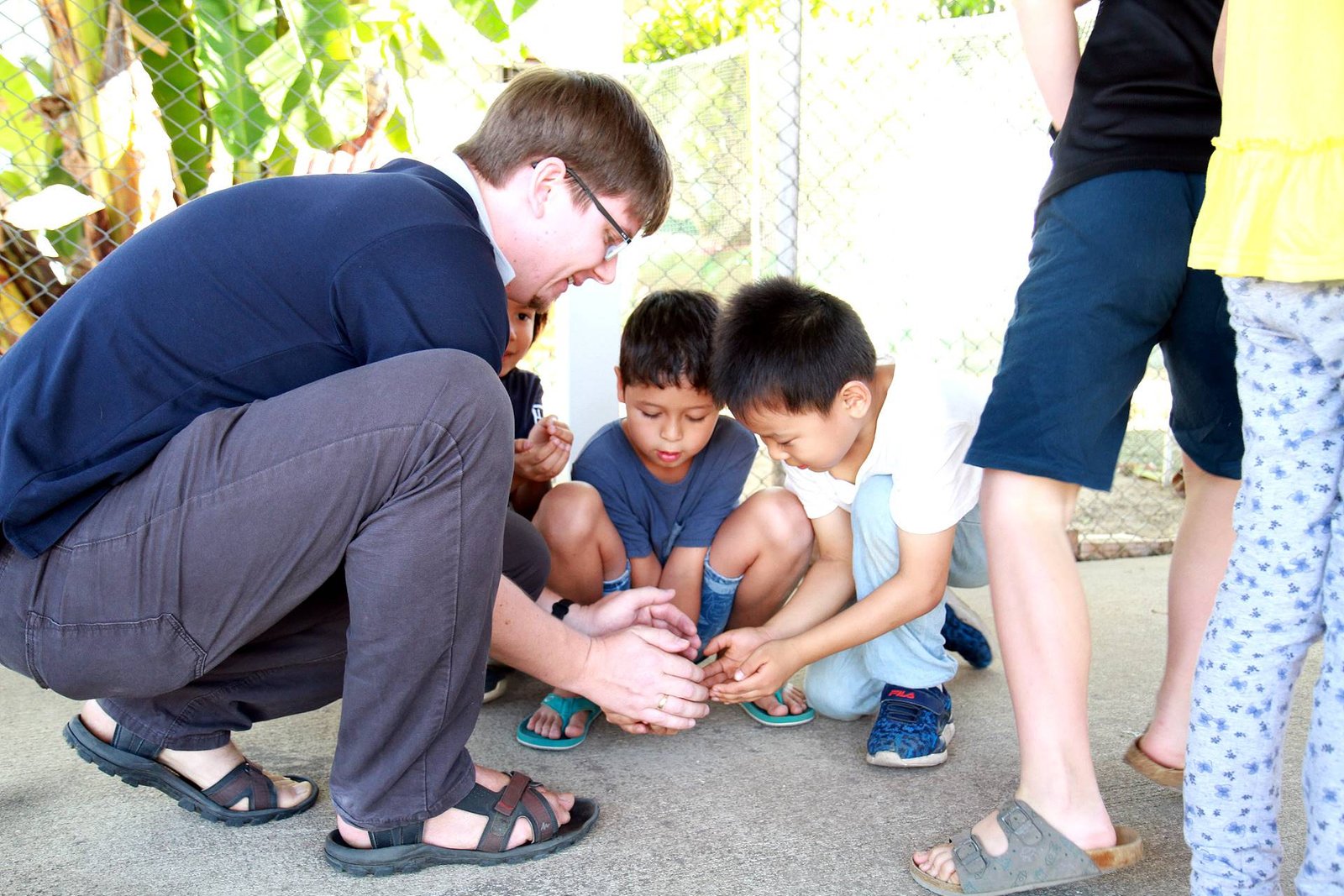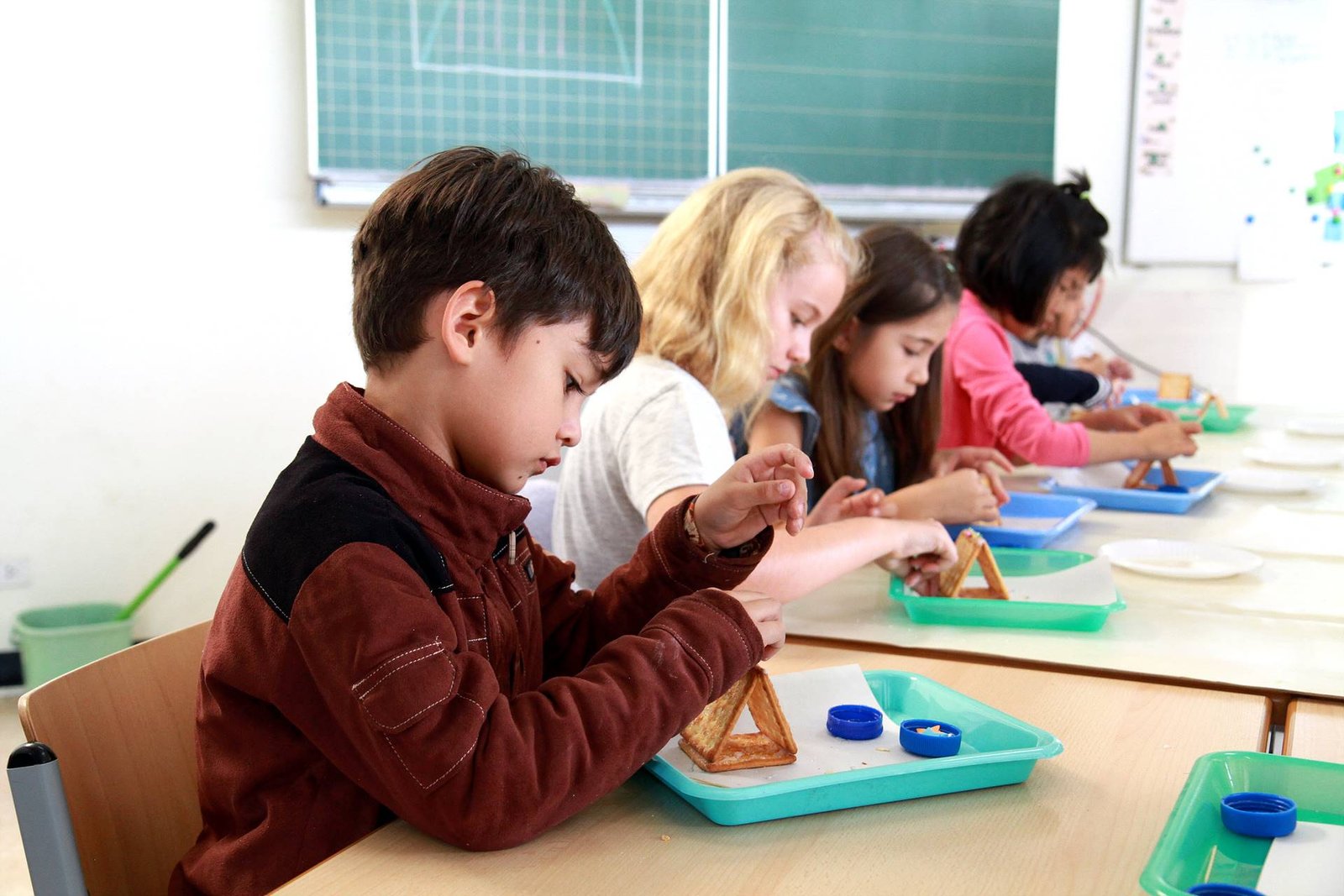Elementary School
Our elementary school encompasses the flexible entry class (grades 1 and 2 combined), 3rd and 4th grade. The curriculum is based on the core curriculum of elementary schools in the state of Thüringen, Germany, and is compulsory for all German schools in Southeast Asia (region 20/21).
Instruction at the elementary school is characterized by an open theory of teaching, meaning that children are encouraged to harness and enjoy independence, responsibility and creativity from the very beginning. They learn through weekly schedules, learning stations, project work and free working periods. This style of education makes it possible to nurture and challenge the children according to their individual strengths and weaknesses.
Since the beginning of the 2012/2013 school year, CDSC has been offering the flexible entrance class, as in some German states. This combines 1st and 2nd grade.
The aim is to ensure that the start of schooling is as suitable as possible for the child and congruent with the learning requirements of each individual. The different lengths of time the children spend in the school entry class and the open structure of the lessons cater to meeting these goals.
In the flexible entry class, grades are mixed, which means that 6- to 8-year-old children learn with and from each other in one class.
This has several advantages:
- Mixed-grade teaching inevitably means that children work individually during one part of the lesson, e.g., with the weekly schedule. In this way, both struggling and thriving students can be better supported.
- School beginners join a group in which rules, rituals and forms of work are already known. In this way, they can quickly adapt essential behavior patterns. The experience and knowledge advantage of older children acts as a motivation for working together.
- The length of stay in the entry class is flexible. Very gifted children can change to 3rd grade after only one year. Slow-learning children can learn the content of the entrance class in three years without having to change their learning group.
- Children help and support each other and learn from each other. The younger ones can listen to the older ones or take on more difficult tasks. Older children benefit by passing on what they have learned to others. For an older child, this means repetition, practice and application of the learning content. Children also train their ability to express themselves and strengthen their social skills.
Every year, the third grade participates in the “Thüringer Kompetenztest” (Thüringen Competency Test) in the subjects of German and mathematics. The test, developed according to the national educational standards of the Federal Republic of Germany, is part of CDSC’s education quality assurance. It allows us to compare the educational level of our students with the national German average, to analyze student performance and to gain diagnostic insight.
Discussion groups and group projects play an important role in the development of our students’ language and communication skills. Our students enjoy working on projects, and we have made this a regular part of our teaching plan. Throughout the year, students participate in a number of class projects and special teaching modules, such as traffic education and a bicycle test in the 3rd and 4th grade, multi-subject projects within the class and the annual elementary school project week. The children learn teamwork as they participate in groups with students of different ages; they also have the chance to learn from each other and to practice reaching agreements, resolving conflicts and working with tolerance.
Various festivals and celebrations are highlights of the school year and are strongly incorporated into classroom lessons as their dates draw near; these include things such as the St. Martin’s Day celebration and lantern procession, the annual Christmas celebration and the school-wide Thai Day.
Two to three hours of English and up to four hours of Thai language and culture lessons each week are part of the elementary school schedule. Students who are not yet fully fluent in spoken German are coached individually by qualified teachers.
Children participate in weekly physical education classes; during the appropriate seasons, children also have a swimming lesson once per week at a nearby swimming pool.
In the afternoon, elementary school students can attend free homework tutoring, supervised by our volunteers. After the homework help, several different workshops are offered, depending on the day and age of the student.
All children who have a basic knowledge of the German language and turn six years old by August 1 can be enrolled in the CDSC elementary school. For children who reach the age of six years after this date, there is a Kann-Kind (prospect) rule. The requirement for enrolling a Kann-Kind (prospect) child is a shared recommendation by the kindergarten teacher and the cooperation teacher or by the kindergarten teacher and the elementary school management.
For eight lessons per week, two teachers and two rooms are made available to the class. Such team lessons can be used to teach first and second graders separately. This has proven to be very useful for introduction lessons in German and mathematics, where a high-performing first-grader can also participate in the lessons of the second grader. Furthermore, team teaching has proven its effectiveness in phases of independent learning. In this way, children can turn to two teachers during the individual learning phase.











